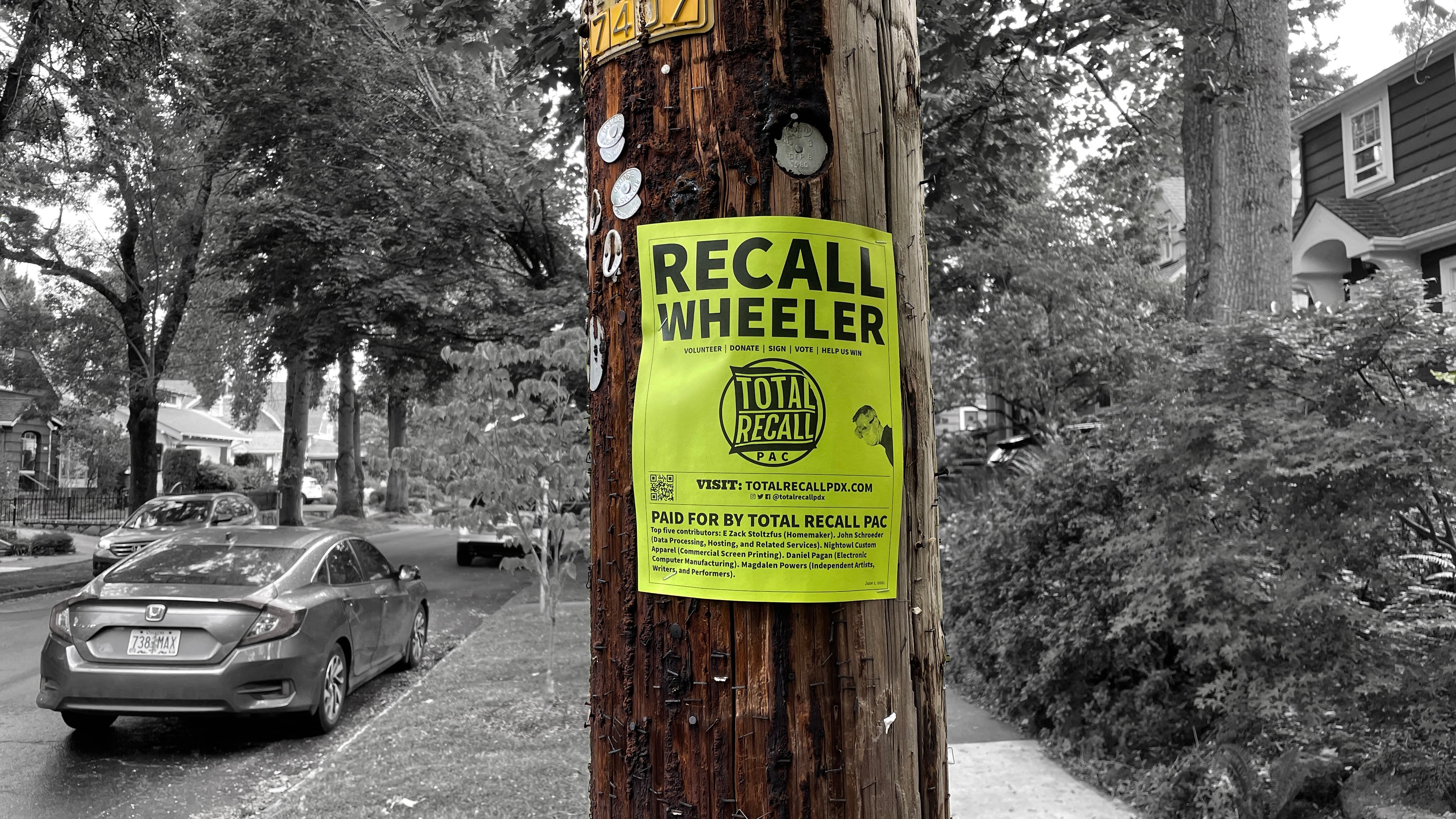The campaign to recall Portland Mayor Ted Wheeler asked city elections officials Sept. 22 for a 90-day extension of the deadline to collect signatures, arguing that COVID-19 and heat waves prevented the campaign from collecting the amount of signatures needed to get the recall on the ballot.
The City Elections Office denied the request two days later, on Sept. 24, according to documents obtained by WW. The deadline for the campaign to collect the necessary signatures stands at Oct. 6.
Had the extension been granted, it would have doubled the standard 90 days that recall campaigns have to collect signatures.
It was a big ask from a campaign that as of Sept. 8 had collected only 13,000 of the necessary 48,000 signatures.
The email requesting the extension came from Seth Woolley, treasurer of the political action committee Total Recall PDX. In it, Woolley argued that it was logistically “impossible” under current conditions to collect the necessary signatures.
“Given that the Delta variant is two to three times more transmissible and began its meteoric ascent within days of the Total Recall greenlight to collect signatures, given the historic heat wave in July depriving the campaign of two weeks of productive signature gathering, and given the governor’s re-imposition of outdoor masking and social distancing requirements, the Recall Ted Wheeler campaign has been significantly hampered in collecting the required number of signatures,” Woolley wrote on behalf of the recall campaign. “Logistically, collecting that number of signatures is impossible, given the novel barriers we face.”
Woolley cited a fall 2020 decision in which the U.S. District Court ruled that a ballot measure campaign was hindered by the state’s COVID-19 protocols and that the 90-day window was unconstitutional in light of those circumstances. The court ordered the secretary of state to allow the measure on the ballot without the full number of signatures required. (The Supreme Court later blocked that decision.)
In the email denying the request for an extension, Louise Hansen, city elections officer, rebutted each of the points made by the recall campaign.
First, she said there were no social distancing requirements or limits on group gatherings during the recall campaign’s signature-collecting window. While an outdoor mask mandate was imposed partway through the campaign, that applied only in settings where social distancing couldn’t be maintained.
She also noted that the historic heat wave mentioned by the campaign occurred prior to its launch of signature collecting efforts.
“The campaign’s 90-day signature gathering period began July 8, 2021,” Hansen wrote. “The historic heat wave in Oregon ended before that date.”
Two less extreme heat waves occurred in July and August, but the city’s 116-degree temperatures came in late June. The most dangerous heat wave spanned June 24 to 29.
And finally, Hansen poked holes in the campaign’s citation of the 2020 federal court ruling, noting that it was made under starkly different circumstances than the current recall campaign because, at the time, Gov. Kate Brown had imposed social distancing requirements and bans on gatherings.
“Assuming that decision provides authoritative guidance on this issue, the conditions faced by campaigns one year ago were different than those faced by the recall campaign,” Hansen wrote.
She added: “Even under the unique conditions of the summer of 2020, the U.S. Supreme Court has indicated that the District Court’s decision was not necessarily correct. The Supreme Court prohibited the decision from taking effect.
The writing on the wall appeared early in the campaign to recall Wheeler, who narrowly won reelection in 2020: Thirty days into the campaign’s allotted 90 days, the campaign had gather just 6,000 of the required 48,000 signatures.
Yet its leaders insisting they could succeed, if only they could raise more money to hire more paid signature gatherers.
Two-thirds of the way through the 90-day period, the campaign announced it had gathered just 13,000 signatures. Still, leaders remained optimistic: Campaign manager Audrey Caines said her team was still hiring paid signature gatherers and soliciting contributions.

